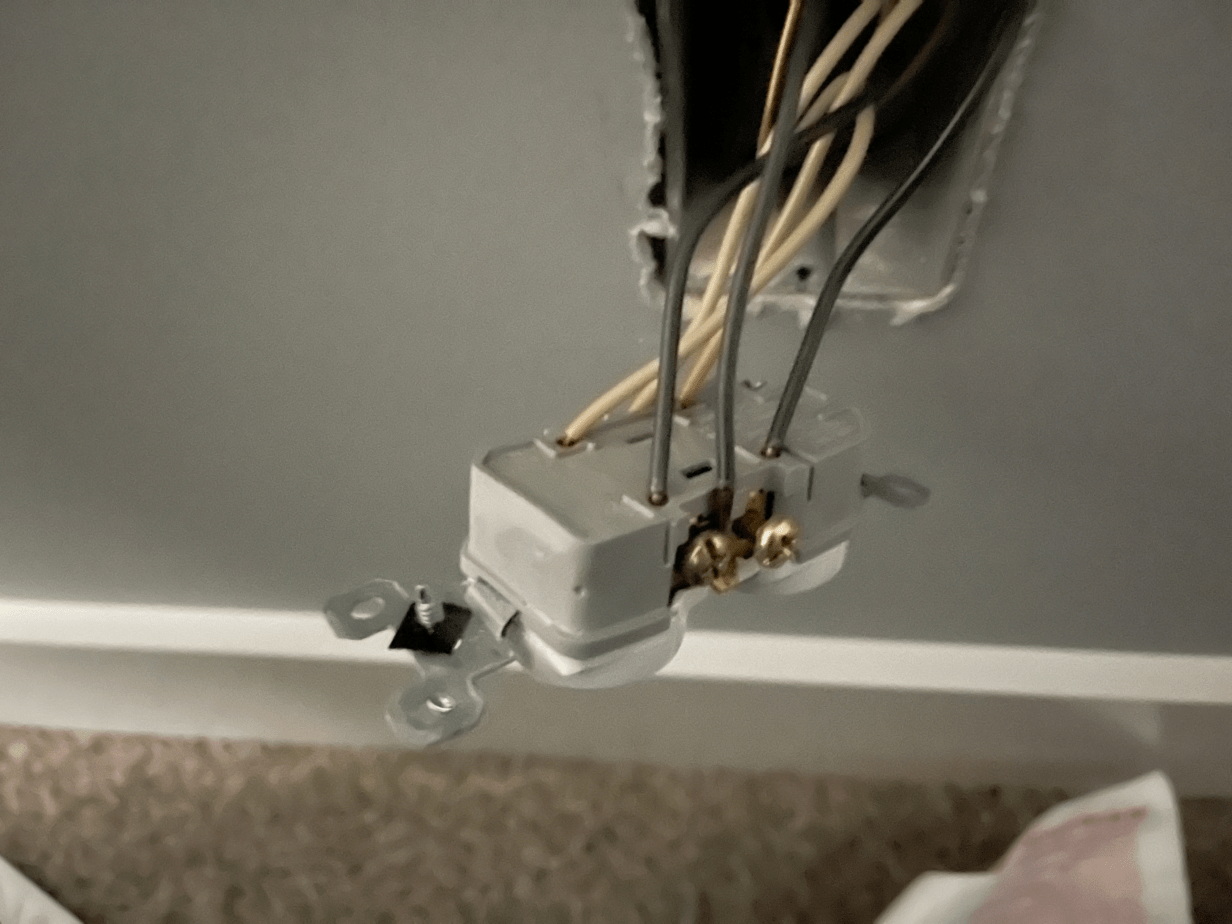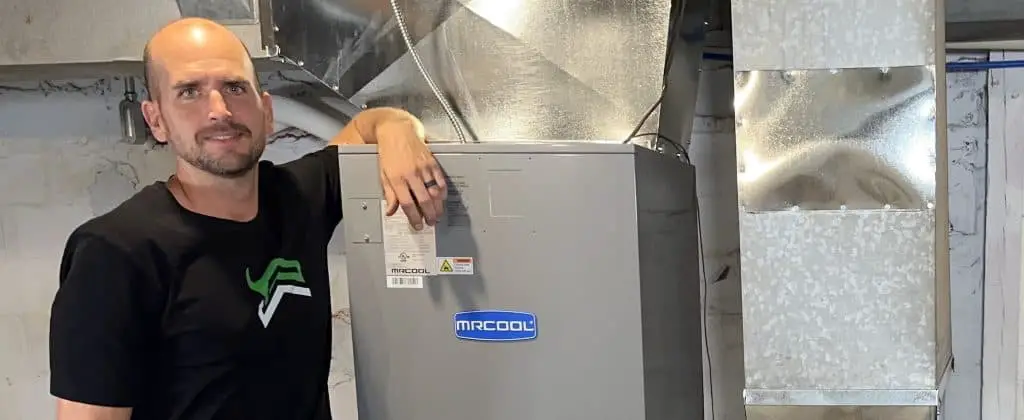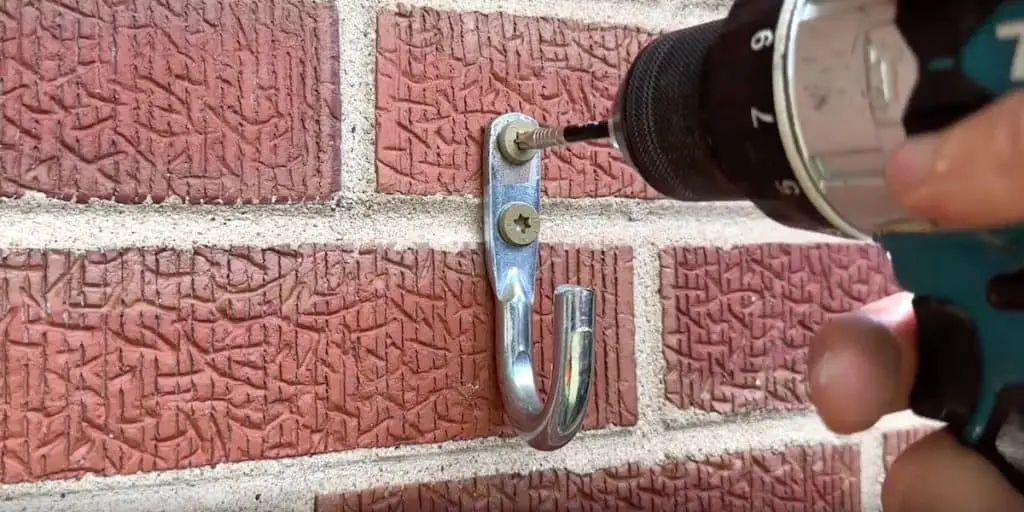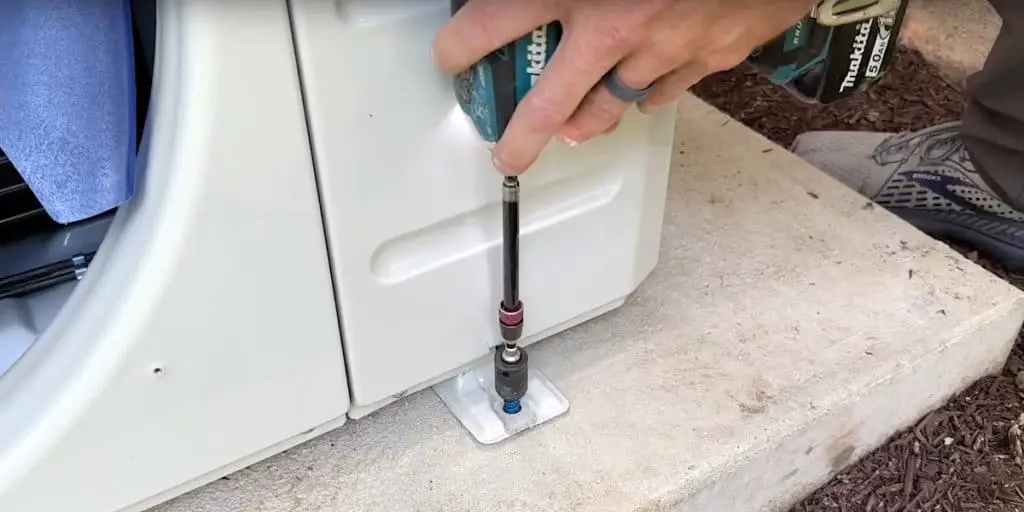One of the questions I hear a lot is: can I do electrical work in my own house? And how do I know when to call an electrician? From one DIYer to another – this is a simple question with a complicated answer that really depends on a.) how comfortable you are with electrical work and b.) the electrical project itself.
Keep reading for information about the legalities of doing your own electrical work, along with information about the National Electrical Code (NEC), local permits, and potential risks and rewards you should know in advance.
First, is DIY electrical work legal? Do I need permits?
Before you start doing any electrical work- be sure you know your local code. The reason codes are in place is to ensure your safety and the safety of others. So you want (and need) to follow them.
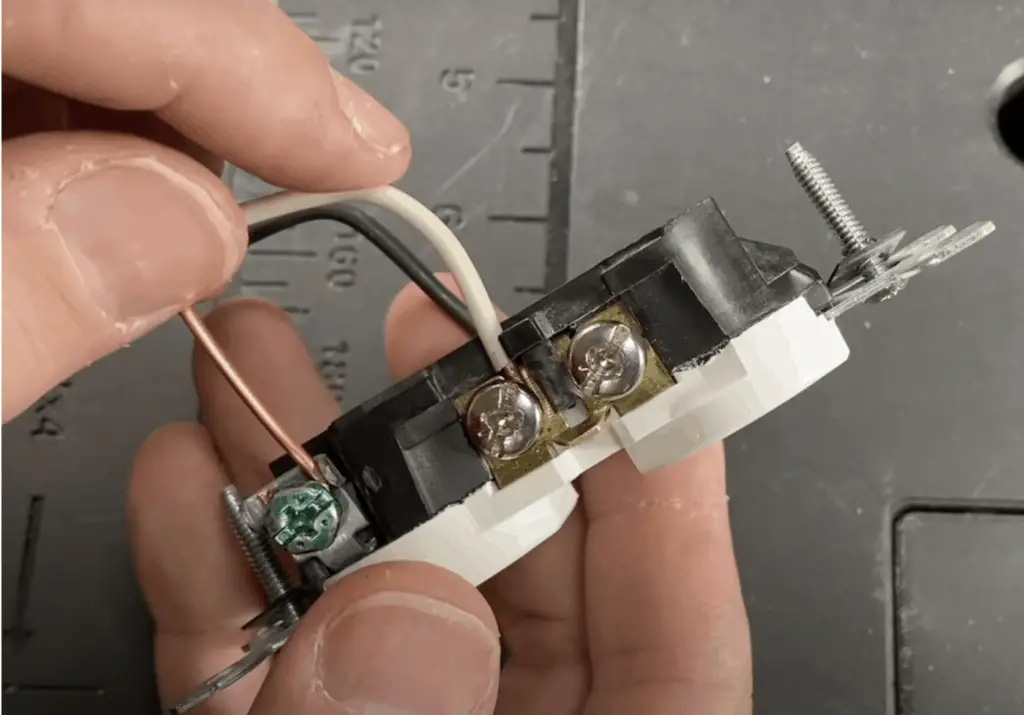
I recommend going to the Buildings Guide, which allows you to search by state, to see the electrical code that pertains to you. But keep in mind that your city will have its own set of codes as well. This is particularly important for anyone who has properties in different cities. Also, make sure you understand the differences if you want to work on your own home (primary residence) or a home you own as a rental property. Often, even in the same city you might be okay to change that outlet in your primary residence but not in your rental property
This is fairly obvious, but a good way to start your research is to Google “<insert name of city> electrical code.” This will likely give you the information you’re looking for and a clear breakdown of what you can do.
Often, the code lists the types of work that do not need a permit as “exceptions” – anything outside of the list will need a permit. Here are a few examples of local code pages in different cities to give you an idea:
- Turlock, CA – Building Permits: The exceptions of what work doesn’t require a permit are listed (replacing fuses, replacing or repairing switches, circuit breakers, lamp holders, ballasts, etc). Anything not specifically listed in the exemptions requires a permit.
- Winnebago, IL – Building Permits: Again, on page 4, there’s a clear list of projects that do not require a permit.
Also, not to make matters even more complex, but some electrical codes apply to the entire house while others apply to specific rooms. So be sure to look into that too!
What is the National Electrical Code (NEC)?
The National Electrical Code (NEC) falls under the National Fire Protection Association (NFPA) and is a regionally adopted set of standards associated with electrical wiring and installation. NEC is updated every three years (2014, 2017, 2020, etc.) and then adopted by regions over time. While I don’t think you need to buy this book – it’s important to familiarize yourself with it.
But even if you know the NEC inside and out, you still need to research your local building departments. They often vary from the NEC – and those codes are the ones that pertain specifically to you. In other words, the NEC is not a legal document and doesn’t have the ability to enforce regulations – even if many of the regulations are the same as the state/city rules that are legally enforceable.
Depending on what you’re doing – it is a good idea to call your local building permit office and have a quick 5-minute conversation with your local electrical inspector.
What are the benefits of DIY electrical work?
As a DIYer myself – I know it’s empowering as a homeowner to do your own electrical work. Not to mention, it can save you time and money.
Many electrical projects are safe when done properly and carefully. They’re generally straightforward projects that have a “right” and “wrong” way to do them. If you know your local NEC adoption (specifically what year of NEC), details of your specific project, and feel confident – you are probably in a good position.
What are the risks of DIY electrical work?
DIY electrical projects are often intimidating – for good reason. The risks of bad wiring can range from fires to power surges to death. So if you’re uncomfortable or unsure when it comes to DIY electrical work – I encourage you to call an electrician. Safety first.
Another potential risk of DIY electrical work outside of safety hazards is failing to meet code. It is possible to wire something that’s functional but doesn’t align with your local code. Why does this matter? If you’re reselling the house and getting the home inspected you could run into issues that may be more expensive than if you just called someone in to help in the first place. As the saying goes, just because you can do something – doesn’t mean you should.
What happens if a fire occurs because of faulty wiring? Will my insurance cover it?
According to the National Fire Protection Association, electrical failures or malfunctions were responsible for 13% of home structure fires in 2012-2016. Electrical malfunctions are second to unattended equipment as the leading cause of house fires in the US.
Whether or not you’ll be covered if a fire occurs in your home because of faulty wiring depends on your situation and your insurance. For example, a fire that occurred because of critters chewing through the wires will likely be handled differently than an improper DIY installation. Similarly, the extent of your coverage can differ based on your wiring system and home’s age. Many homes built before the 1950s use outdated electrical wiring, such as knob-and-tube and aluminum as opposed to copper. These are known to have a higher failure rate – so if you have one of these systems, you may need to purchase a special rider/endorsement.
DIY Home Wiring 101: Tips to doing electrical work safely
- Disconnect the power source before doing anything. Whether you’re replacing something or cleaning – be sure it’s switched off or unplugged.
- Take off bracelets, rings, necklaces, or anything else that could interfere – especially metal pieces.
- Always double check if the power is off with a Non-contact Voltage Tester or Outlet Tester prior to starting work
- Avoid using “speed wiring” instead either use traditional side wiring or back wiring if you are using commercial grade receptacles and switches
- Ensure you are using the correct gauge of wire for the Amperage rating of the circuit
Always remember, if you are uncomfortable with the job call in a licensed professional!
